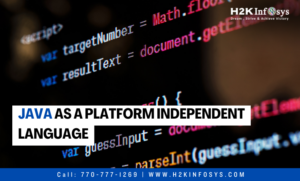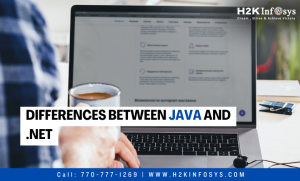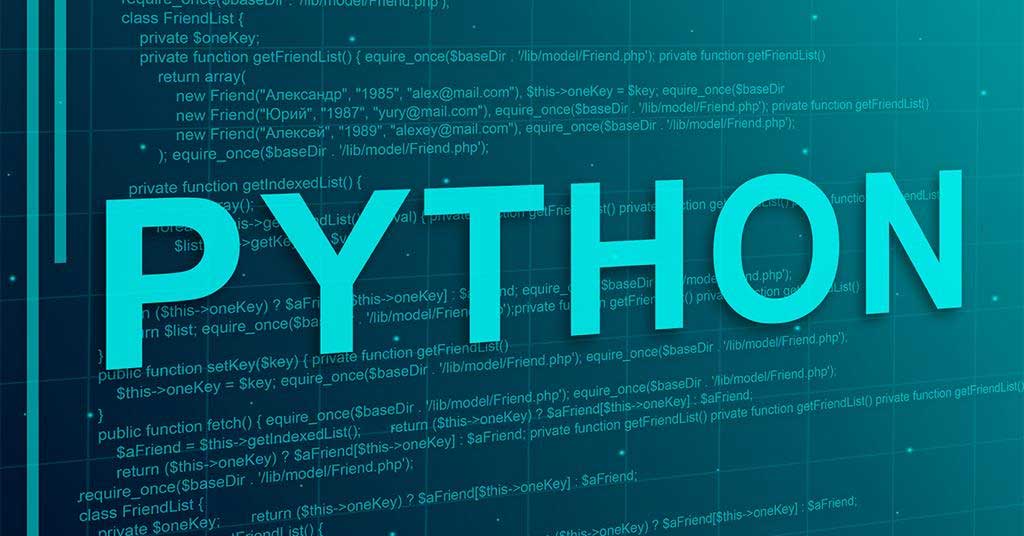The word Core gives the details of the introductory generalities of commodity and then the word ‘Core Java’ gives the description of the introductory Java which covers the introductory conception of Java programming language. As we all are apprehensive that the Java is one of the well- known and largely used programming languages and to start with it then the freshman has to start the trip with the Core Java and also towards the Advance Java.
The Java programming language is a general- motive programming language which is grounded on the Object acquainted Programming conception. The depth of Java language is too deep to learn, i.e., as much we learn more, we will know its depth. Java is the platform-independent and robust programming language. Primary principle which is to be followed by Java is WORA which says that the Write once, Run Anywhere.
The programming language is relatively easy and simple to understand. But one should know that Core Java isn’t different from Java. Java is been complete in itself, but for the newcomers, it’s natural that the freshman must begin with the core generalities of Java. In fact, Java has different editions, where Core Java is one of the corridor of an edition.
The Java SE is a computing- grounded platform and used for developing desktop or Window grounded operations. therefore, core Java is the part of Java SE where the inventors develop desktop- grounded operations by using the introductory generalities of Java where JDK( Java Development Kit) is a relatively familiar Java SE perpetration. Generalities which have been covered in Core Java. Following are :some of the major introductory generalities of Java through which a freshman should go through
1. Java Fundamentals OOPs generalities Overloading & Overriding o heritage with Interface and Abstract Class o Exception Handling Packages
2. Collection of Multithreading Swings Applets JDBC( Basic Database Connections) Although these major generalities hold its own depth, after gaining and enforcing the stylish knowledge in the introductory Java generalities, one can move towards the advanced Java interpretation as the advanced section of the Java is relatively intriguing but can only be understood when the core generalities of Java are clear. Core Java covers the introductory generalities of the Java programming language.
3. It’s the first step, to begin with, Java.
4. Core Java is used for developing computing or desktop operations.
5.. Core Java is grounded on single- league armature
6. It comes under Java SE. 6. It covers core motifs similar as OOPs, heritage, exception running,etc.
In Java, Set and Map are two important interfaces available in the collection frame. Set and Map interfaces which are being used to store in a collection of objects as a single unit. The main difference between Set and Map is that Set is unordered and contains different rudiments, whereas Chart contains the data in the crucial- value brace.
TheJava.util package provides the Set interface. Set is enforced by extending the collection interface. It does not allow us to add the same element to it. It does not maintain the insertion order because it contains rudiments in a sorted way. For designing the fine Set, we use the Set interface in Java. import java.util. *; public class
SetExample{
public static
void main
String() args) / creating LinkedHashSet perpetration using the Set Setmarvel_movies = new LinkedHashSet(); .
add(” Captain Marvel”); .
add(” Thor Ragnarok”); .
add(” Captain America The Winter Soldier”); .
add(” Ant- Man and the Wasp”);
(marvel_movies);
Map Interface:
Map is been another important interface which is been available in the Collection interface. So, in order to use the Chart interface, we’ve to extend the Collection interface. Just like the Set Map is also being used for storing the collection of objects as a single unit.
Each object is storing in a crucial- value brace. We can fluently pierce the value using just the crucial because each value is associated with a unique value. We can fluently search, modernise or cancel the element by using the Chart.
Map and Sorted:
Map are the two interfaces, and Tree Map, Linked Hash Chart, and HashMap are three classes of Map. Still, we’ve to convert it into Set because Map can not be covered, If we need to cut a Chart. After converting it into Set, we can cut it using the Set styles like crucial Set() and entry Set().


























